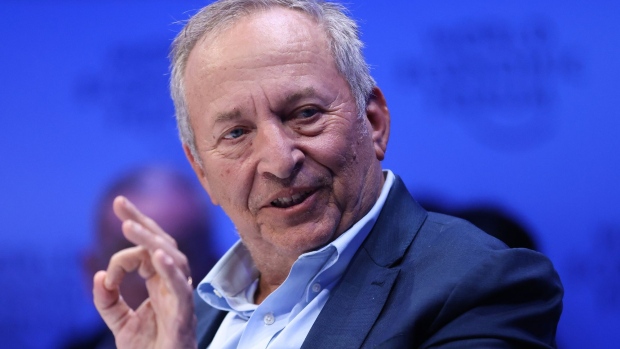Mar 10, 2023
Summers Warns Consequences ‘Severe’ If SVB Deposits Not Released
, Bloomberg News

(Bloomberg) -- Former Treasury Secretary Lawrence Summers warned that there will be “severe” consequences for the innovation sector of the US economy if regulators don’t smoothly work out the collapse of Silicon Valley Bank.
“It certainly is going to have very substantial consequences for Silicon Valley — and for the economy of the whole venture sector, which has been dynamic — unless the government is able to assure that this situation is worked through,” Summers said on Bloomberg Television’s “Wall Street Week” with David Westin.
Earlier Friday, regulators stepped in and seized the bank known as SVB after it mounted an unsuccessful attempt to raise capital and saw a cash exodus from the tech startups that had fueled its rise. The lender had plowed the tens of billions of dollars it took in from venture-capital-backed startups into longer-term bonds, a move that led to massive losses.
The Federal Deposit Insurance Corp., which has been appointed as SVB’s receiver, only insures bank deposits of up to $250,000. But a large share of the money deposited at SVB was uninsured: more than 93% of domestic deposits as of Dec. 31, according to a regulatory filing.
“There are dozens, if not hundreds, of startups that were planning to use that cash to meet their payroll next week,” according to Summers, a Harvard University professor and paid contributor to Bloomberg Television. “If that’s not able to happen, the consequences really will be quite severe for our innovation system.”
Summers said he hoped that regulators will be “aggressive about containing the problem and containing possible contagion.”
“I don’t think this is a time for moral-hazard lectures or for talk about teaching people lessons,” he said. “We have enough strains and challenges in the economy without adding the collateral consequences of a breakdown in an important sector of the economy.”
The sudden implosion of SVB delivered a deep blow to a sector already reeling from layoffs, falling stock prices and diminishing funding for startups. The bank is most known for its financing in the venture capital community but also serves as a financial supermarket for tech executives, providing mortgages on mansions, personal lines of credit and financing for vineyards.
Treasury Secretary Janet Yellen earlier in the day convened a meeting of top regulators, after which she issued a statement saying that the US banking system “remains resilient” and that regulators “have effective tools” to address developments around Silicon Valley Bank.
For his part, Summers said, “I don’t think this is likely to be a broadly systemic problem.”
The hammering of SVB’s stock triggered a broader selloff in US lenders, with the KBW Bank Index tumbling 16% for the week — the worst selloff since the March 2020 Covid shock to the financial system.
Bank Stocks Post Worst Week Since March 2020 as SVB Roils Sector
Summers said it doesn’t now look like the biggest banks had the kind of mismatch between the kind of deposits SVB had and “the ways in which they had invested their money in longer-term bonds.”
Earlier Friday, Summers said that “there may be a need for some consolidation” in the banking sector as a result of the latest developments. That could then pose a test for regulators, he said.
A number of Democrats have pushed to limit bank mergers. For example, Senate Banking Committee Chair Sherrod Brown last year called for “ensuring that bank mergers, if approved, serve American families, small businesses, and communities – not Wall Street and big corporations.”
Summers warned that “one of the mistakes the authorities could make would be — out of a fear of consolidation coming from some kind of populist concern about concentration — blocking combinations that would ultimately operate in the direction of financial stability.”
“That’s something I think that we’re going to need to be attentive to going forward,” the former Treasury chief said.
--With assistance from John Gittelsohn.
©2023 Bloomberg L.P.





